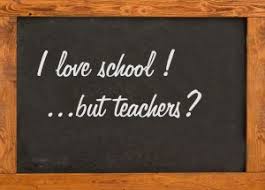 A new report into what parents really want from their schools, written by the education writer Fiona Millar, makes for very interesting reading. Her report for the Pearson Centre for Policy and Learning, shows that parents have high expectations of their children’s schools. In it,
A new report into what parents really want from their schools, written by the education writer Fiona Millar, makes for very interesting reading. Her report for the Pearson Centre for Policy and Learning, shows that parents have high expectations of their children’s schools. In it,
…a very clear, almost unanimous picture emerged of what that good local school should be like. Academic qualifications, good teaching and well managed behaviour matter hugely, and good levels of literacy and numeracy are particularly significant, but so too is the social and emotional development of pupils, their wellbeing and the opportunities to develop according to their specific personal or special needs.
And there is a clear hunger for more and different information than a league table or government data set will ever be capable of providing. Parents want a more rounded, balanced picture of how their children and their schools are performing and not just academically. Bullying, exclusions, behaviour management, the personal development and happiness of pupils, the views of other parents and even the CVs and qualification of heads and teachers were mentioned. Moreover they want that information regularly, in an easy to digest format, preferably directly from the school, either by text, email or via the school website.
And most significantly of all:
…everyone from headteachers to government ministers will need to listen carefully to what parents really want, rather than what they think we should have.
As the final, illuminating paragraph indicates, schools are now having to wake up to the fact that a more enlighted culture of parenting is emerging, one where parents are actively interested in addressing, assessing and monitoring their children’s education, are aware of the standard of provision that schools should be delivering, and are becoming more pro-active about addressing areas in which they perceive an issue. Communication between school and parent is vital: school websites in particular are expected to provide clear, relevant and useful information and to be regularly up-dated.
Read the full article here, and details of the report on the Pearson website here.

 Read the full article online
Read the full article online 
 Those children who took part in weekly musical activities were better able to recognise emotions in others than children who did not.
Those children who took part in weekly musical activities were better able to recognise emotions in others than children who did not.
